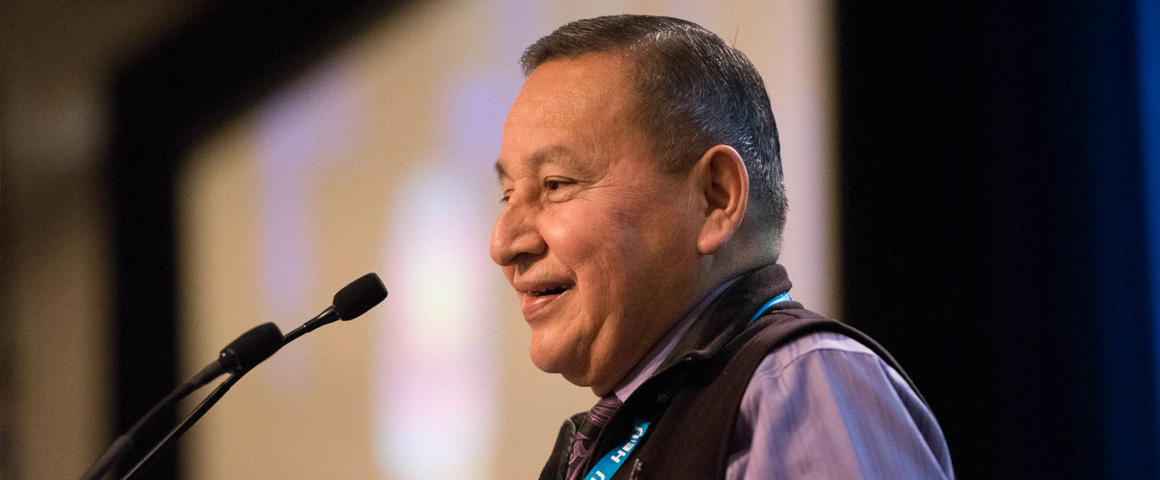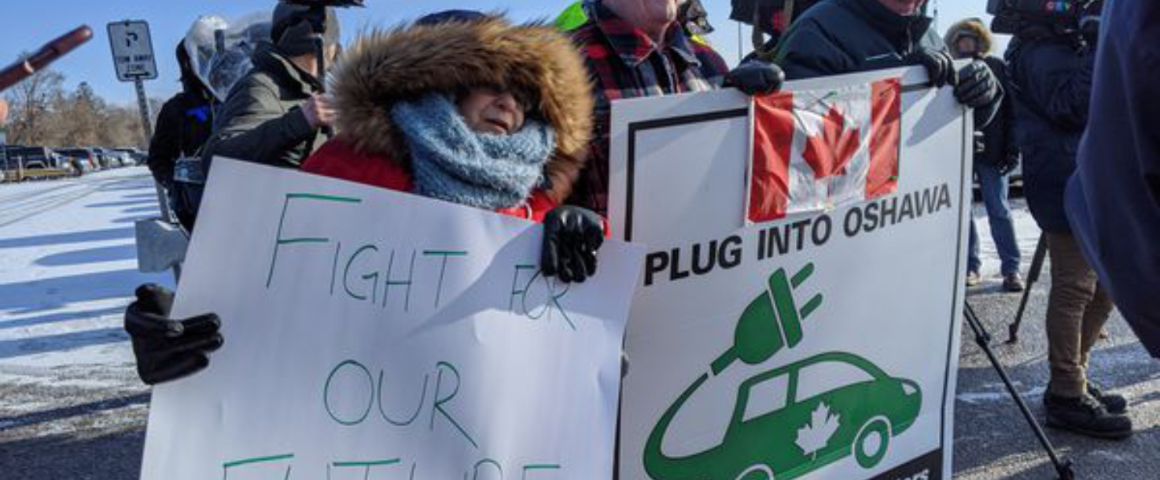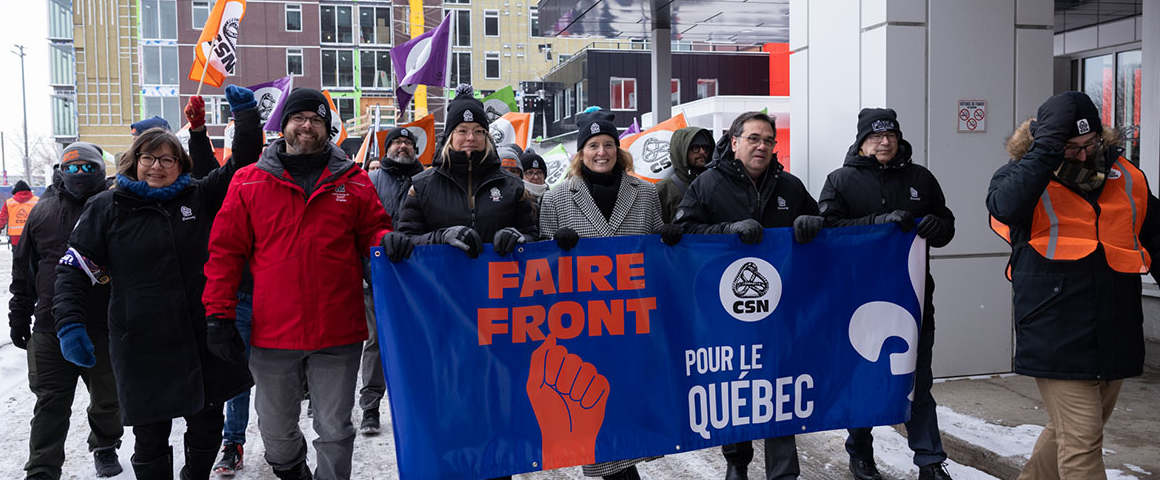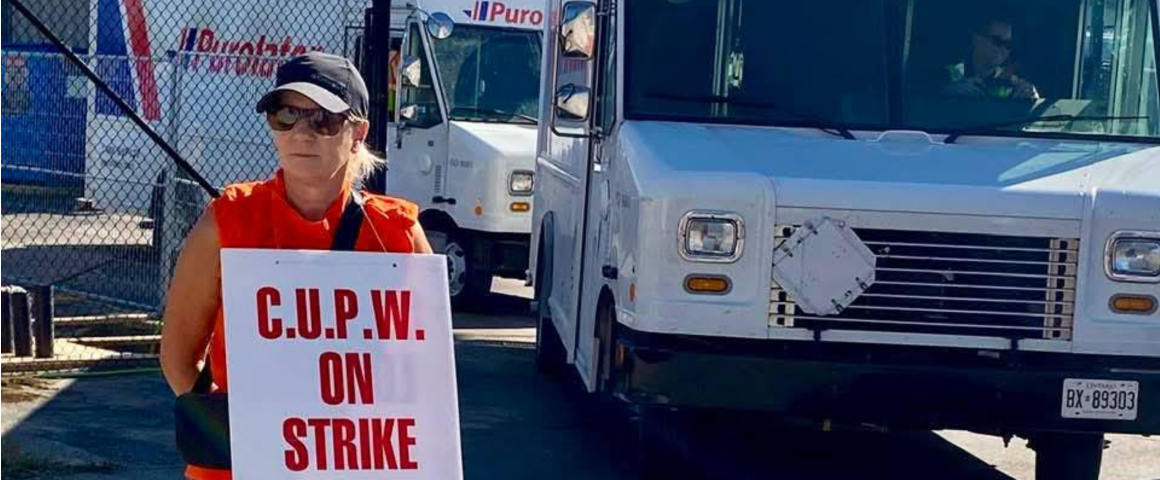The 30th Biennial Convention of the Hospital Employees’ Union (an affiliate of CUPE and the oldest health care union in British Columbia, representing 46,000 members) began on October 31 with solidarity greetings from Joey Hartman, President of the Vancouver and District Labour Council, and the next day from Irene Lanzinger, President of the B.C. Federation of Labour.
A presentation on the crucial Dr. Brian Day case in B.C. Superior Court was made by Dr. Rapinder Brar of Canadian Doctors for Medicare and Adam Lynes-Ford of the B.C. Health Coalition, who spoke out against Day’s promotion of U.S.-style extra billing, privatization and the destruction of Canada’s public health care system.
Charles Fleury and Mark Hancock, Secretary Treasurer and President respectively of CUPE National, complimented HEU and its leadership and emphasized the importance of ousting the Christie Clark Liberal government and electing the NDP on May 9 next year.
Provincial NDP leader John Horgan told the 600 delegates that he would implement the $15 minimum wage and a $10 a day child care program, and eliminate the remaining parts of Bill 29, which prepared the ground for contracting out support services like housekeeping, food services and laundry in 2004. But Horgan was vague on plans to alleviate the housing and education crises, and he said nothing about public transit, pipelines, fracking and the Site C dam construction, especially as they affect the environment, farming and indigenous lands.
Health Sciences Association President Val Avery brought greetings emphasizing the relationship between the two unions, especially against raiding by the B.C Nurses’ Union.
Grand Chief Stewart Phillip of the Union of BC Indian Chiefs, and his wife Joan spoke about their activism on indigenous issues. They recently went to Standing Rock in solidarity with water protectors opposing the North Dakota Access Pipeline, and Grand Chief Phillip was arrested during the Burnaby Mountain protests against the Kinder Morgan pipeline expansion. They want their children and grandchildren to live in a peaceful world, with clean water and air.
A powerful video on the Highway of Tears in northern B.C., where indigenous girls and women have gone missing, was presented along with indigenous women dancers to the music of A Tribe Called Red.
A resolution was adopted to support the CUPE red dress campaign, whereby red dresses will be displayed to draw public attention to murdered and missing women. Another proposal supporting the recommendations of the Truth and Reconciliation Commission was also passed.
Delegates passed resolutions on housing, addiction and mental health throughout the province, and restoring inexpensive bus passes for those with disabilities. The union’s Care Can’t Wait Campaign was endorsed, along with a call for a renewed cost-shared Health Accord between the provinces and the Federal Government. Opposition to private, for profit surgical clinics and a call for enforcement of the Canada Health Act was endorsed by the convention. Another resolution said the “HEU will not support charities that deny access to or do not support LGBTQ+ community.”
Missing in the deliberations were international issues, including war and peace, and issues such as public ownership of the banks and energy. Half of the convention time was spent on internal matters such as constitutional amendments, in contrast to other unions and the houses of labour which deal with one or two amendments at a convention. One significant amendment to have conventions every three years instead of two was defeated.
There was no debate on the HEU’s almost unquestioning support for the NDP, rather than a strategy of mass independent labour political action and coalition-building.
The convention elected Victor Elkins for a third term as President, and Donisa Bernardo for a sixth term as Financial Secretary by acclamation. Jennifer Whiteside was endorsed as Secretary Business Manager.




